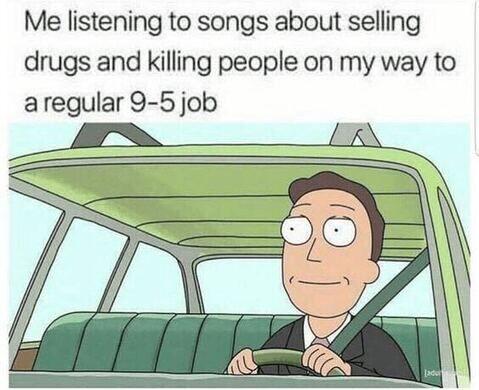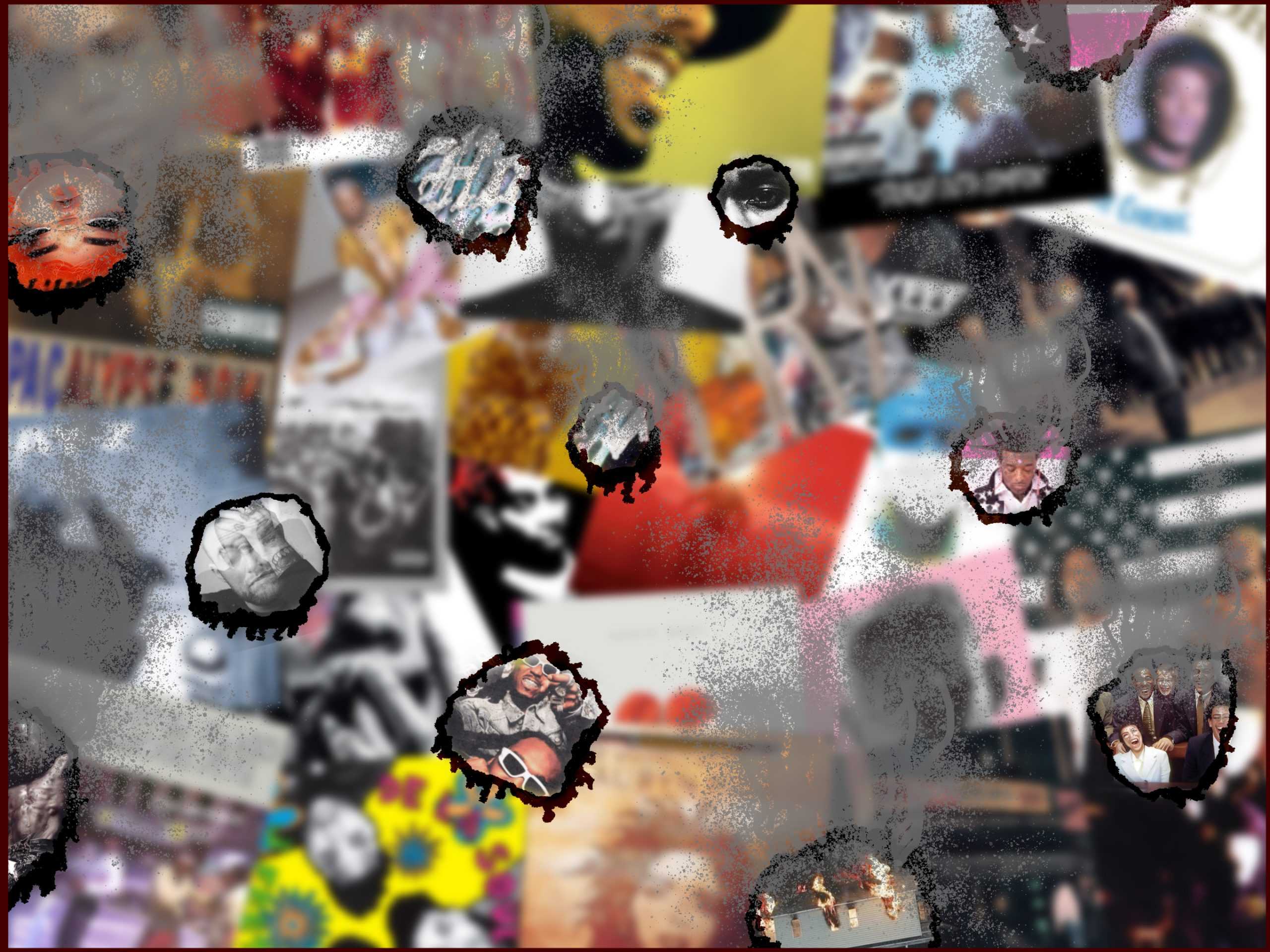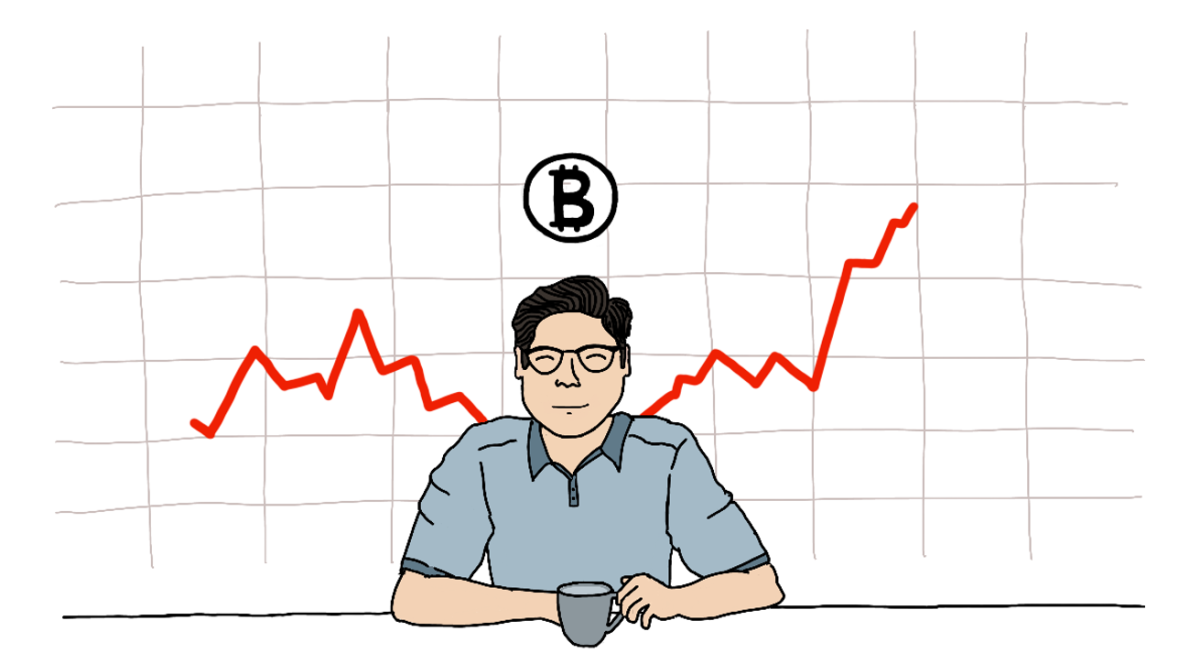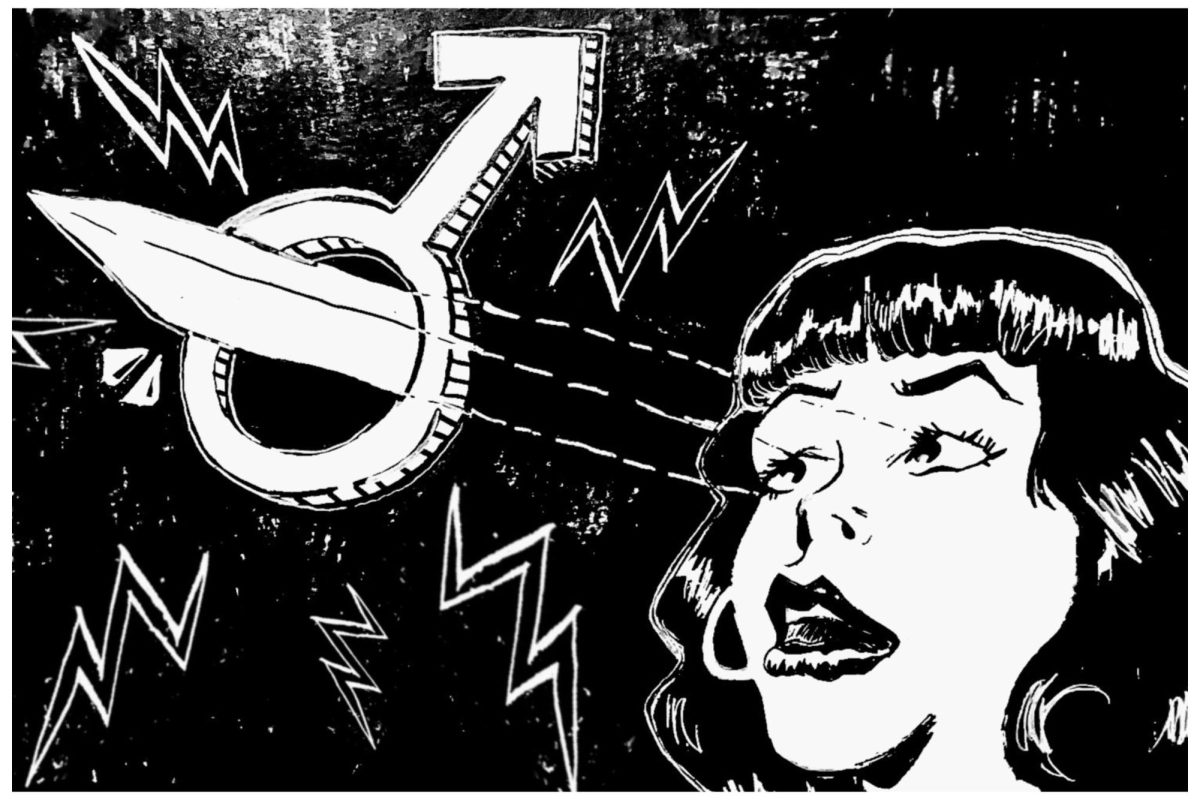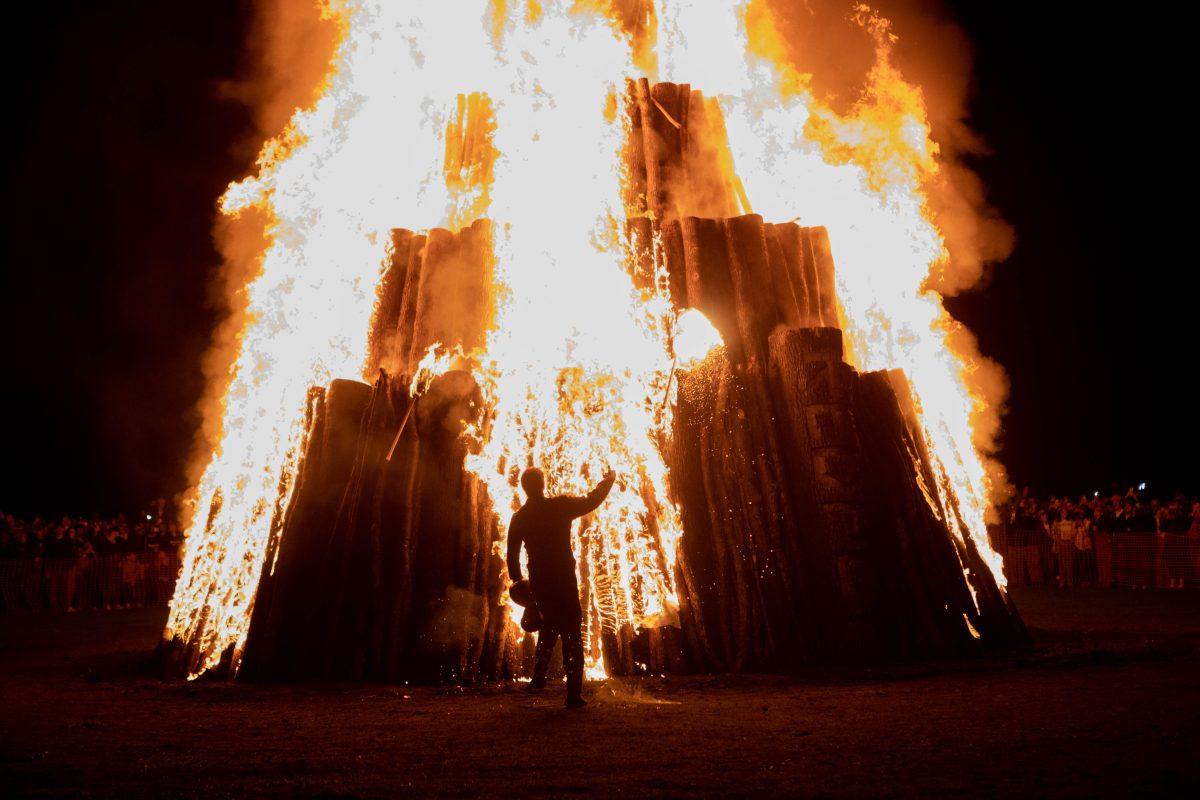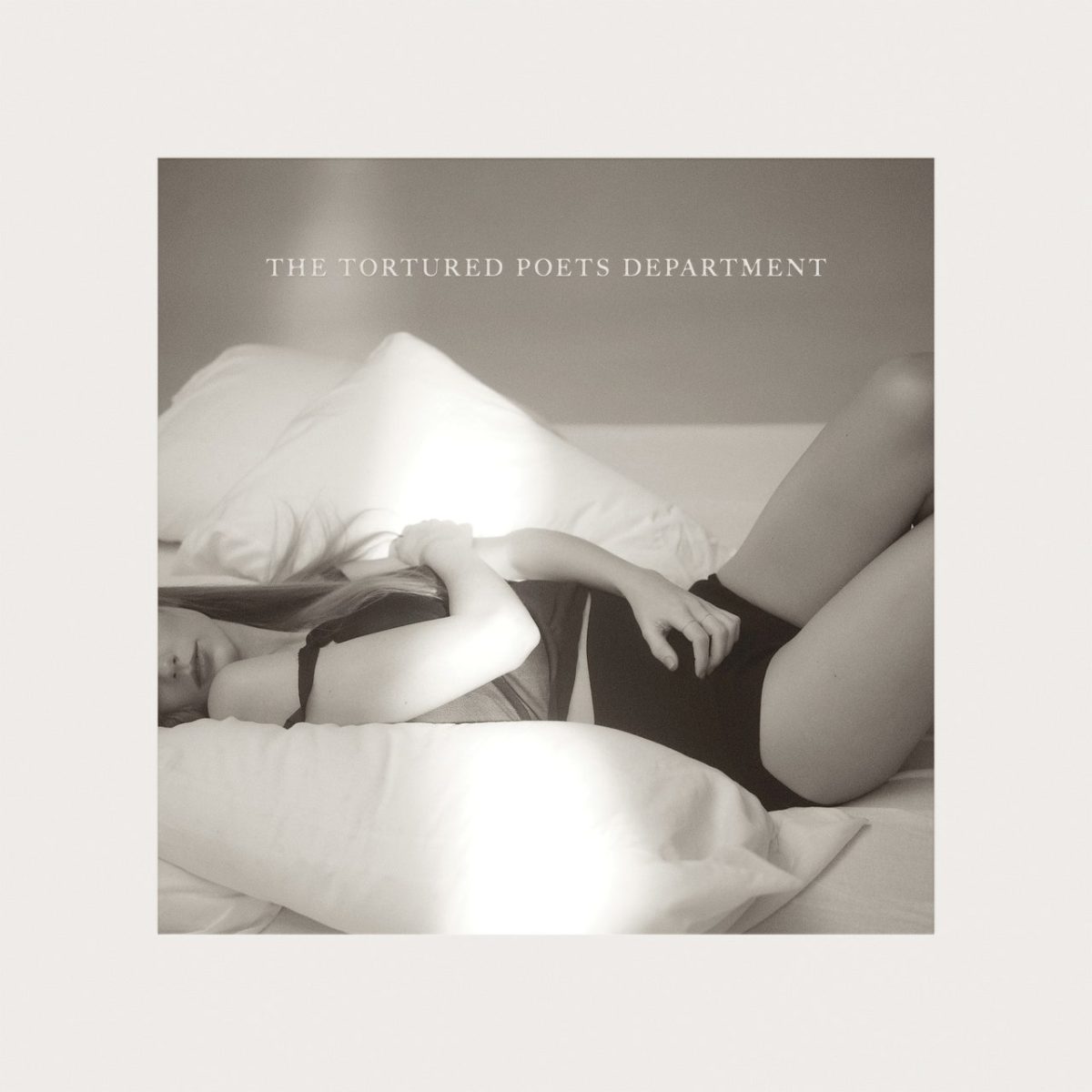I have some unfortunate news for avid listeners of the rap genre: it’s dying, or at the very least, heading towards the music industry’s equivalent of a retirement home.
Surpassing rock, rap was declared the most streamed genre in the United States by Forbes in 2017. Only six years later, it’s starting to show signs of fatigue. Yahoo Finance reports a dip in rap’s total market share, which saw a peak in 2021 but has been down for two consecutive years since.
This is all the more interesting when you take into account that for the first time in streaming history, the global music industry surpassed one trillion streams within three short months of this year.
If the country’s top genre is shrinking in popularity even while more people are listening to songs than ever before, the audience or distribution windows aren’t the problem. It’s the genre.
Three critical issues face hip-hop and are the primary suspects in its speedy decline.
The first is that rap is notorious for its tellings of young, urban, often dangerous and convoluted lives of Black men. While there are always exceptions, one of the reasons for its gradual rise to the nation’s most streamed genre is due to its taboo and foreign topics, a majority of its listeners cannot personally relate to.
Rap is unique from other genres because rather than amassing listeners through relatability, it instead offers an escape from the mundane — at least for listeners such as myself. It provides a chance to live vicariously through the very rebels who resist conformity, critique the middle class and refuse to work an office job.
This lifestyle is riveting to the common consumer, however, it cannot personally be maintained forever. Whether it’s drug addiction, petty gang violence or suicide, maintaining the lifestyle rappers pride themselves on is a seemingly impossible task.
Finding the balance between flexing what you’ve rightfully earned as an artist while also still trying to live dangerously is a tight-rope, some rappers have been smart enough to hop off before being forced to walk it.
Some weren’t so lucky — Mac Miller, XXXTentacion, Pop Smoke, Juice WRLD and Takeoff to name a few. However, this goes beyond senseless shootings and accidental overdoses. While it may seem that the music industry will always adapt and fill the void left by departed artists, this hasn’t been the case for rap.
Just three of the artists I mentioned above are responsible for HALF of the top-10 most-streamed rap albums on Spotify, with XXXTentacion’s “?” ranking No. 1. These voices, along with the aging O.G.s of the 90’s who were central to crafting the modern concept of rap, cannot be expected to carry the weight of an entire genre — dead or not.
This brings us to point two.
The genre is struggling to produce young talent. You’ve got a few stars in their early 20s such as Baby Keem and Lil Baby trying to influence the genre the same ways in which their forefathers did. However, with Baby’s “It’s Only Me” album underwhelming most listeners and Keem taking time in between dropping albums, there’s often months of waiting in between quality songs.
Many of the artists associated with rap itself, namely Young Thug, 21 Savage, Drake, J Cole, Tyler, the Creator, Kendrick Lamar, Ye, Andre 3000 and Lil Wayne are several albums, or in some cases, decades into their careers. They don’t experience the same hunger or desire to blow up on the charts as they may have earlier on, and are instead venturing into musical experimentation.
Look no further than Post Malone’s “Austin,” Drake’s “Honestly Nevermind” or Kendrick Lamar’s “Mr. Morale and The Bigsteppers.”
This brings us to our final point: commercialization. Rap becoming the most popular genre may have been more of a curse than a blessing. If we rewind to the genre’s roots, you’ll see that rap originated and grew its niche audience by giving the once considered voiceless a platform.
In its natural state, rap is a testament to the very lives and experiences it attempts to showcase via the struggles and injustices its lyrics are often centered around.
Nas’ 1994 “Illmatic” is a quintessential example of this style of storytelling, and is one of the artists who is indirectly responsible for rap’s eventual introduction into commercialization.
With rap becoming mainstream in the mid-90s thanks to groups like N.W.A, The Notorious BIG and even Jay-Z, who eventually went on to become the first billionaire rapper, many other artists like Eminem noticed the profitability that came with being mainstream.
This paved the way for artists such as Drake, who is still widely popular for his sound that crosses both the pop and rap genres. Unfortunately, as other music labels tried to recreate the success of this new wave of clout chasing hip-hop, we somehow ended up with “Munch.” It became less about the music and more about the status that came with it.
If 2015-2019 was modern rap’s prime, it has prematurely developed arthritis along with white hair and wrinkles. The industry replicates what the people want, and right now that’s trap music heavily focused on production and beats rather than the lyricism and storytelling that once captivated listeners.
As someone who has listened to the genre since middle school and found my voice alongside the genre itself, it is a disheartening sight to see the music reduced to a competition to become the next 15 second sound used for TikTok.
On the other hand, this is now forcing artists to become creative with their work. Some have even gone so far as to experiment with a new genre entirely, like Lil Yachty’s exploration of the alternative scene.
Given this development, I suspect rap will broaden and merge with other genres such as pop and indie in the future. Music doesn’t stay stagnant, so artists who look to be around for another few years must find ways to develop and evolve their music to the streaming world’s liking. For example, Mac Miller defied the rap music standard with the release of his two final albums “Swimming” and “Circles.”
Expect genre-bending albums by your favorite artists, anticipate new artists who will attempt to pioneer the industry to new horizons and don’t be surprised if Lil Uzi Vert and Olivia Rodrigo team up for a head-banging single.
While the artists I know and love have either died or are entering their twilight years, I can still appreciate where they’ve taken the genre and their role in introducing it to a wider audience that may have otherwise never listened.
Though rap has become formulaic and lost its momentum, that doesn’t mean it has to disappear completely. A new era awaits.
Benjamin Barnes is a telecommunication media studies senior and opinion writer for The Battalion.

















